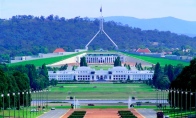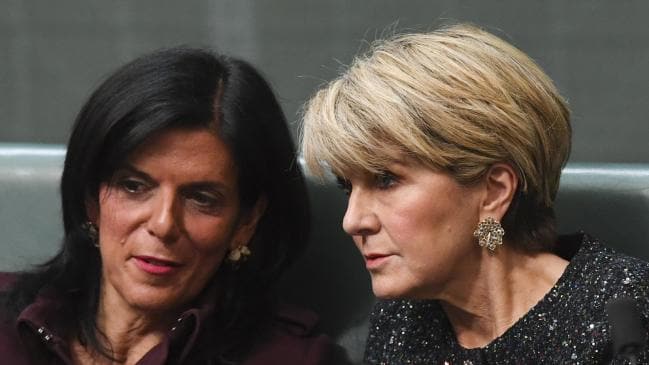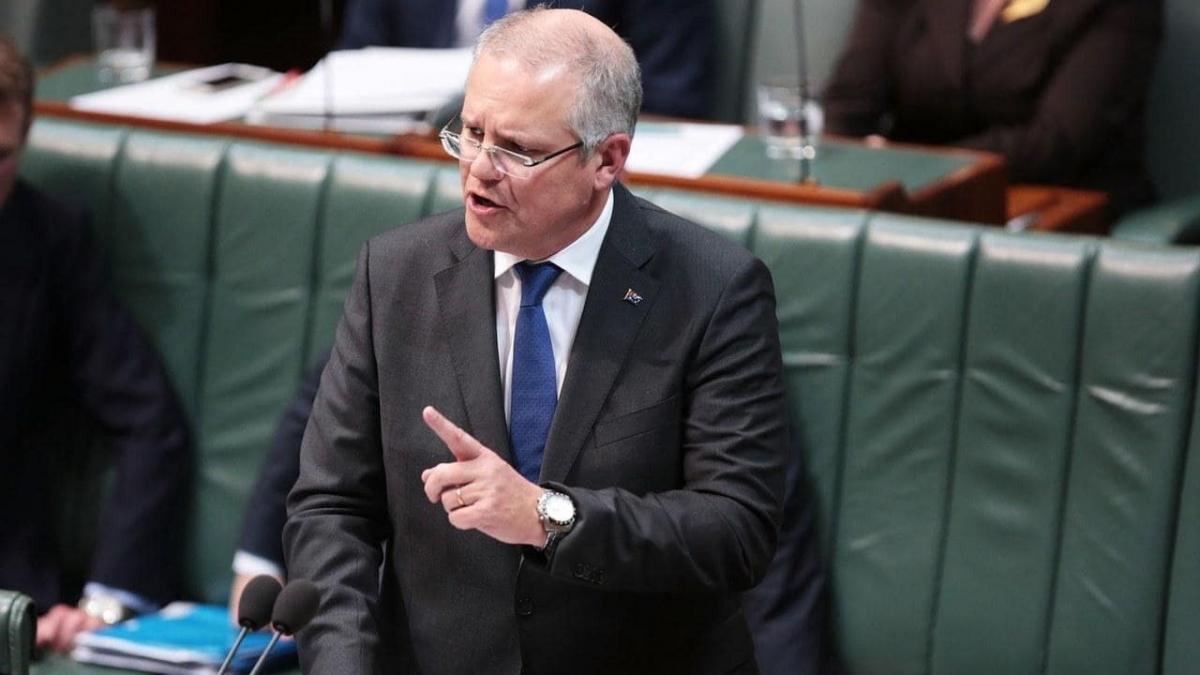- About Us
- Columns
- Letters
- Cartoons
- The Udder Limits
- Archives
- Ezy Reading Archive
- 2024 Cud Archives
- 2023 Cud Archives
- 2022 Cud Archives
- 2021 Cud Archives
- 2020 Cud Archives
- 2015-2019
- 2010-2014
- 2004-2009
 |
Gender In Australian Politics |
Politicians are unpopular. As a class, they lack respect. Since the Liberal-National Party Coalition Government dumped Prime Minister Turnbull in August 2018, the more realistic internal assessments have admitted that voters are tired of MPs being more preoccupied with themselves than with the people they should represent. The Liberal Party lost the safe seat of Wentworth vacated by Turnbull for the first time in a massive swing against the party. An independent female candidate outpolled the Liberals’ male candidate.
During the coup against Turnbull, the Liberals refused to endorse his very popular Deputy Julie Bishop and opted instead for a compromise candidate Scott Morrison, a man whose style resembles that of an American televangelist. Following the ousting of Turnbull, some Liberal women complained that they had been bullied, One very high profile female MP – the only Liberal to take a seat from Labor at the 2016 election, announced that she would not run again and later resigned from the party to sit on the ‘crossbench’ with some other high profile women.
The Coalition’s opponents have been quick to point out that the Liberals and Nationals both have trouble securing the election of female candidates. Part of the Nationals’ appeal to conservative rural voters has been an emphasis on traditional family values but this has been revealed as hypocritical given the behaviour of some Nationals MPs. Former party leader Barnaby Joyce left his family for a pregnant staffer and the MP for western Victoria sought out young companions on a website. There is an implication that male MPs are out of touch with policies and behaviour that might meet approval with female voters. Even the swaggering style of male MPs in Question Time is poor leadership when all MPs mouth opposition to domestic violence.
Liberal Party spokespersons have made some lame responses to these charges. Some have argued that there is no bullying. Some have suggested that politics is a tough business, implying that it might be an occupation unsuited to women. They ignore the fact that if politics has a rough edge to it, this anti-female bias has been created by the current members of parliament, probably consciously for the advantage of men. In one bizarre comment a member of the recently routed Victorian Opposition suggested that if the party’s opponents wanted the Liberals to elect more women, they should stop standing against them and defeating them!
The female foreign minister pointed out that the Liberals did elect a record number of women in 1996. Labor women dismissed that female influx as the accidental result of a landslide and that the Liberals had preselected several women who were not expected to win a seat. Since the 1990s Labor has adopted quotas for preselection of women candidates in winnable seats and the party has now achieved nearly 50% female representation.
The Liberals usually resist talk of quotas saying that such a practice would run counter to the party’s philosophy and that all their candidates are selected on merit. Unfortunately, many Liberal MPs seem to be so lacking in merit that this argument has become a joke. The obvious insult to Labor’s female MPs who might have benefitted from quotas is not lost on voters.
According to some understandings of democracy, elected assemblies should reflect the general composition of the population, at least in politically significant characteristics. Parliament should represent the diversity of ethnicity, age and gender. There has never been any argument about geographical areas. There has been more agitation about gender than about other characteristics. Ideally an assembly which is 50% female should make better decisions than one which is unbalanced.
Recognising the push for better balance, one senior Liberal suggested that the party should preselect one male and one female candidate in every electorate and then let the voters decide. The so-called Carlton proposal has never been tried.
In the final analysis, the Coalition parties will make its decisions about female MPs based on electoral appeal. Like all parties, the bottom line for the Coalition is whether or not their candidates appeal to the voters. There is some evidence that female voters are less enthusiastic about the Coalition than are male voters. Either Coalition policies or their candidates lack appeal, and these two factors can clearly be related. Although this gender gap has been small – about 1% in current elections – it could be very significant in a tight contest. The challenge for the Coalition parties is to modernise, but of course, if they could do this, they would lose the support of those conservatives who are anti-immigrant, homophobic and pro-coal, and who fear the push for justice for Indigenous peoples. Anxiety over gender issues could mean that history is finally catching up with the right wing of Australian politics.
A former academic, Tony Smith has written extensively on a wide range of subjects as diverse as folk music and foreign policy issues in the Australian Review of Public Affairs, the Journal of Australian Studies Review of Books, Overland, the Australian Quarterly, Eureka Street, Online Opinion and Unleashed.
